How to get rid of fruit flies for good using 9 harmless methods
Need help with getting rid of fruit flies? Follow our expert methods to ensure the tiny flying pests stay away from your home
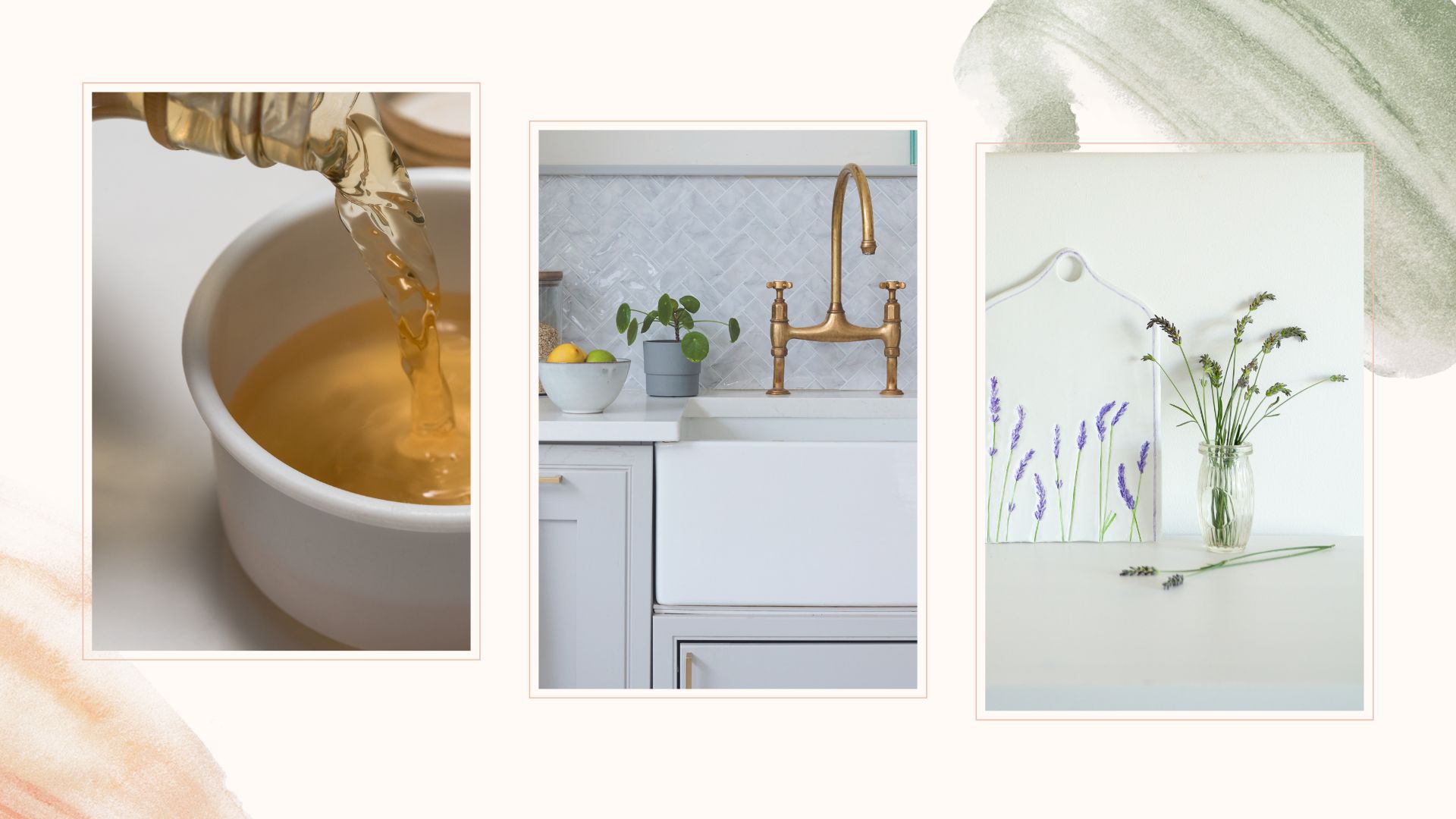

Helen Booth
Dealing with seasonal pests in the house is irritating, but figuring out how to get rid of fruit flies can become of equal annoyance. Luckily, we have harmless homemade solutions that are easy to execute yet highly effective.
Unwelcome pests in the home are an extremely common scenario during summer - and incredibly irritating - but thankfully, the problem can be easily solved if you know how.
When it comes to getting rid of fruit flies, much like getting rid of flies and keeping wasps away there are lots of simple and harmless ways to repel the pests from flying through open windows.
Follow the guidance from our team of pest control and cleaning experts to keep your house free from fruit flies this summer.
How to get rid of fruit flies: 9 harmless methods
Thankfully, there is a simple step-by-step process to eliminate fruit flies and keep prevent future infestations.
Similar to keeping ants away and getting rid of spiders all you need is a solid action plan to get rid of fruit flies in the house, once and for all.
1. Reduce your waste
Deal with the problem at the source by limiting the amount of produce you have in your kitchen.
Sign up to our free daily email for the latest royal and entertainment news, interesting opinion, expert advice on styling and beauty trends, and no-nonsense guides to the health and wellness questions you want answered.
"The best way to avoid fruit flies is to cut your waste," says Adam Juson, co-founder of commercial pest control company, Merlin Environmental. "If you only buy what you know you’re definitely going to eat/use, you’ll not only ensure that you have nothing to attract fruit flies into your home – while also saving yourself some money."
Limiting food waste is not only a good source for saving money it's also a great sustainable living idea.
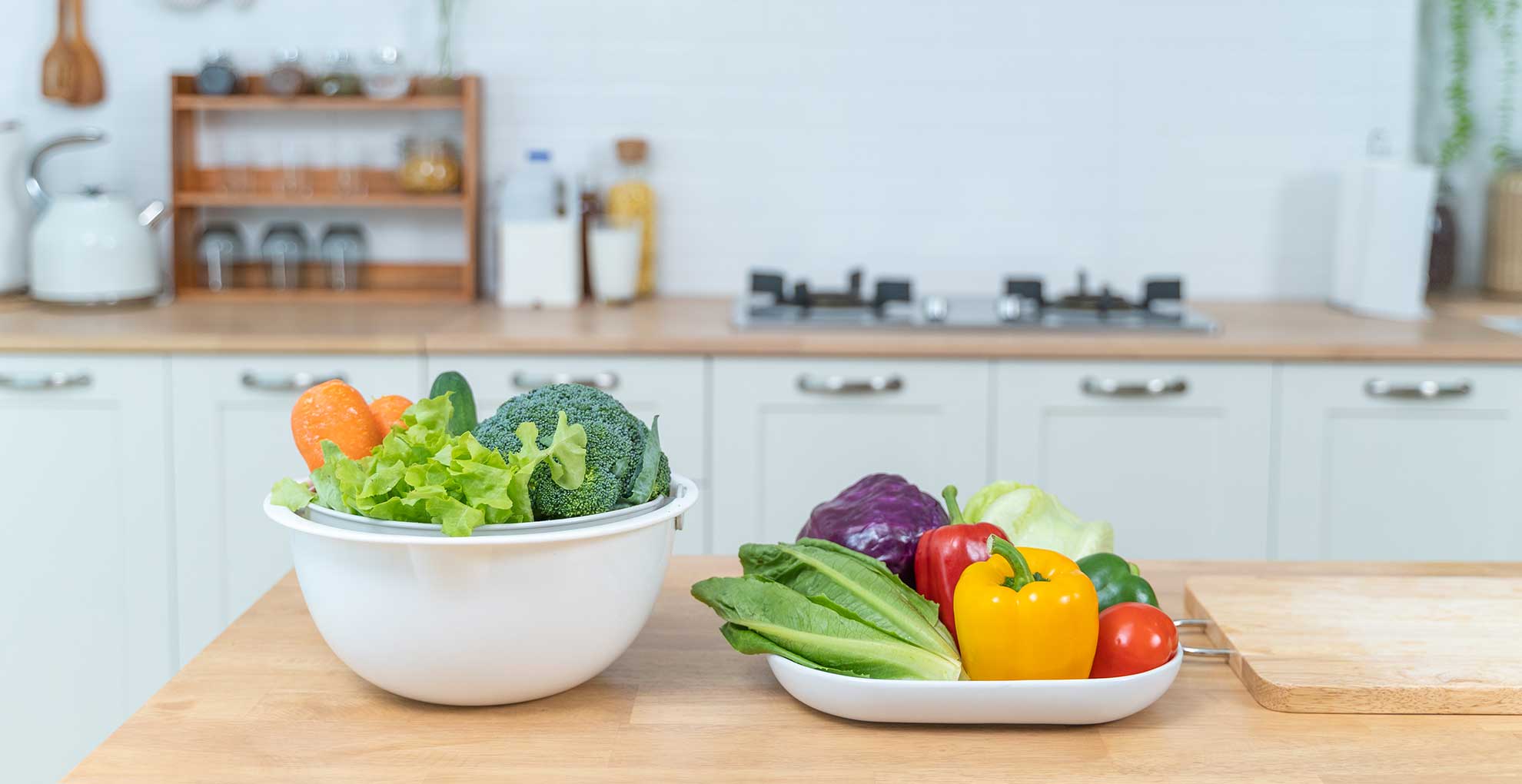
2. Wash and refrigerate ripe fruit
To eliminate possible breeding grounds, wash fruit with apple cider vinegar as soon as you bring it home. “Getting rid of and keeping fruit flies away is straightforward if you know what to look out for,” says Clara Velho, CEO of Gemstone Cleaning Services.
“As a general rule, start with keeping the kitchen clean, including washing the fruit and the bowl you keep it in. I soak my fruit in apple cider vinegar mixed with water for about 20-30 minutes as a fantastic way of getting rid of bacteria.”
It can also help to store ripe fruits in the fridge. As soon as any produce starts to look overripe, chop it up and freeze it, then use it as an ingredient in baking or for making smoothies. Ensure you have a regular routine in place for cleaning your fridge to keep it hygienic.
3. Empty your bins
While it’s tempting to put off the task of emptying bins until they are completely full, it’s important to empty them daily in the summer. "Emptying your bins at least daily can help to stop fruit flies taking hold," says Adam.
This is particularly true of compost bins or any other bin that contains food waste. Even a recycling bin that contains any lingering food residue could provide a breeding ground for fruit flies.
Emptying and wiping down bins daily will not only reduce feeding and breeding grounds for fruit flies and other pests but will also prevent unpleasant and lingering smells in the kitchen. Try the savvy cleaning hack for better-smelling bins by using essential oils (more on that later).
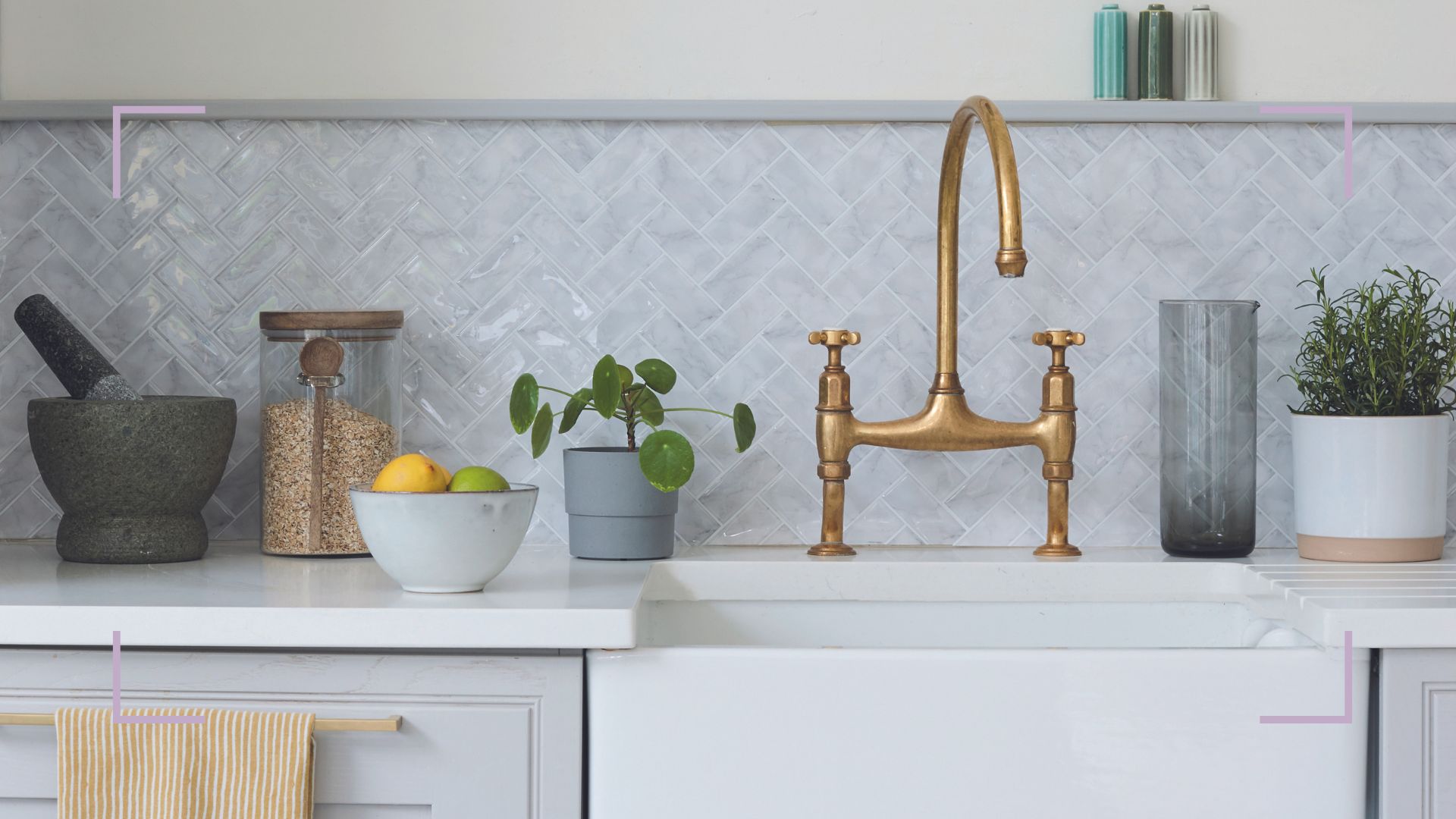
4. Sanitize and close your drains
Fruit flies and drain flies both become a problem when drains are not cleaned properly. Drain flies (or sewer gnats) are another pest that can be mistaken for fruit flies as they are very similar in appearance.
"You should pay attention to areas where fruit flies may lay their eggs, such as drains," says Jordan Foster, a specialist at Fantastic Pest Control. "If organic residues attract the flies, use a drain cleaner to remove them."
If you’ve noticed these teeny pests gathering near the sink, you can use a commercial drain cleaner, or a homemade solution (for example, a mix of baking soda and vinegar is a highly-recommended kitchen cleaning hack) to deep clean the drain, then keep the plug closed when not in use.
6. Clean regularly
To prevent future infestations, keep surfaces clean, including those in cupboards and fridges, and deal with leftover foods (including any scraps left in your food processor, for example) as soon as you’re finished eating by throwing them away or storing them in an airtight container.
"Ensure your kitchen is clean and food debris-free by cleaning it regularly," says Jordan. "Food sources for fruit flies can be removed by wiping down counters, sweeping and mopping the floor, and emptying and cleaning garbage cans frequently. If you spill food or any other liquid in your kitchen, clean it up immediately."
5. Set a natural trap
Once your kitchen is clean and you’ve removed any potential fruit fly breeding grounds, you’ll need to set a trap for any pests still buzzing around your kitchen to get rid of them completely.
"By using vinegar traps, you can capture fruit flies attracted to the smell of vinegar,' suggests Jordan. "Fill a small bowl or jar with apple cider vinegar or white vinegar and cover it tightly with plastic wrap. Make a few holes in the plastic wrap. The scent will draw fruit flies in, but they will not be able to get away."
Simply fill a few small containers with a mixture of apple cider vinegar and a squirt of dish soap, then cover the container with cling film and prick it with a toothpick to create a few holes.
If you don’t have any cling film, you could also top the containers with a piece of paper rolled into a funnel. The fruit flies should be able to get in, but not out of, these traps. Leave a few of these around your kitchen for a few days to catch any lingering flies.
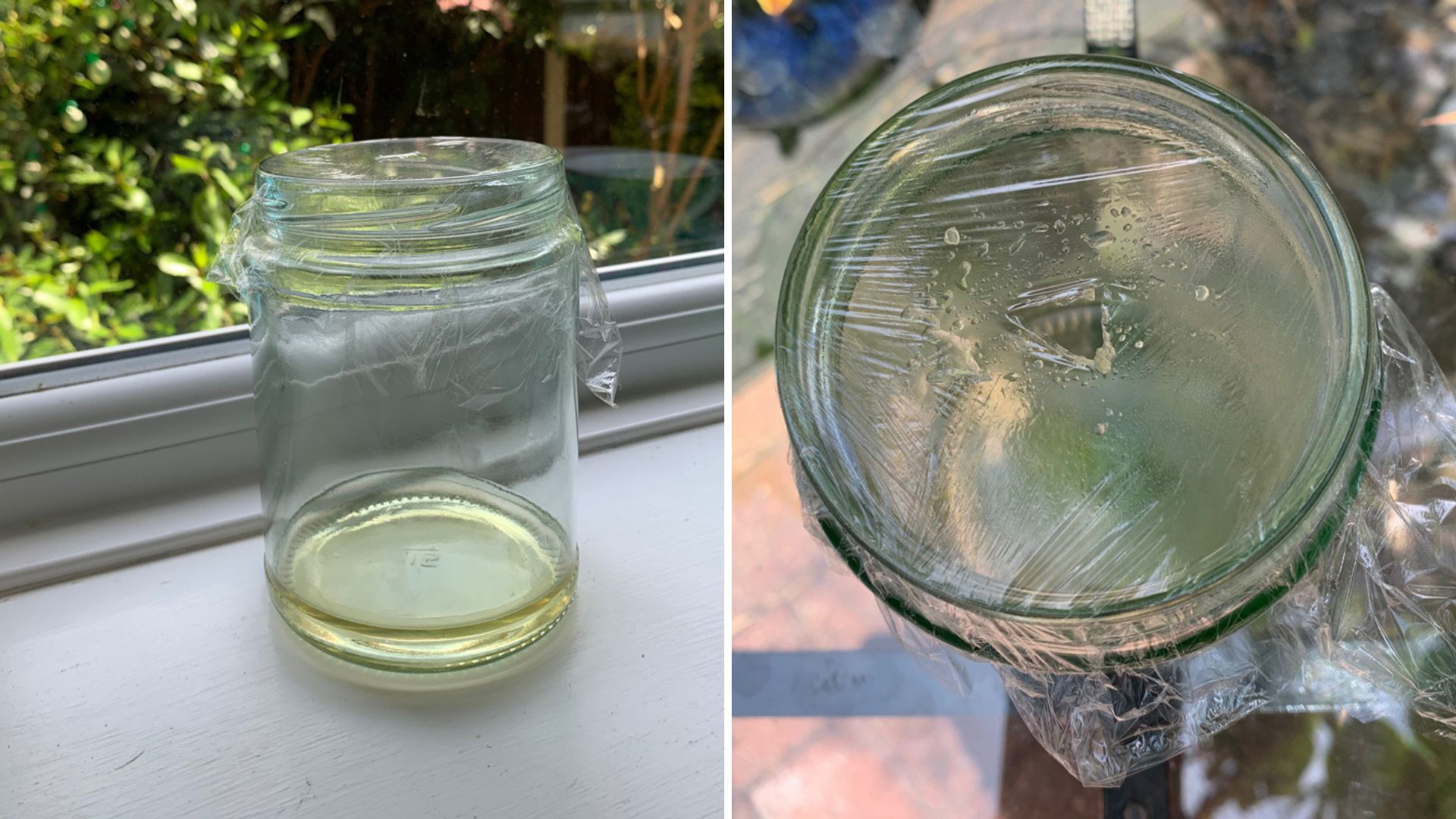
Tried and tested method to get rid of fruit flies in the house.
7. Repel fruit flies with plants
As well as brightening up the kitchen and aiding cooking by providing herbs, indoor plants can also help to deter fruit flies. "Plants are a great way to repel pesky fruit flies," Suzie Woolley, head of plants at Serenata Flowers.
"Fruit flies typically hate the smell of lavender, rosemary, and peppermint, to name a few, so keeping these in your kitchen or living areas is a great way to keep them pest-free."
Keep a pot of basil near your window (where fruit flies often enter), or scatter some individual basil leaves around your fruit bowl.
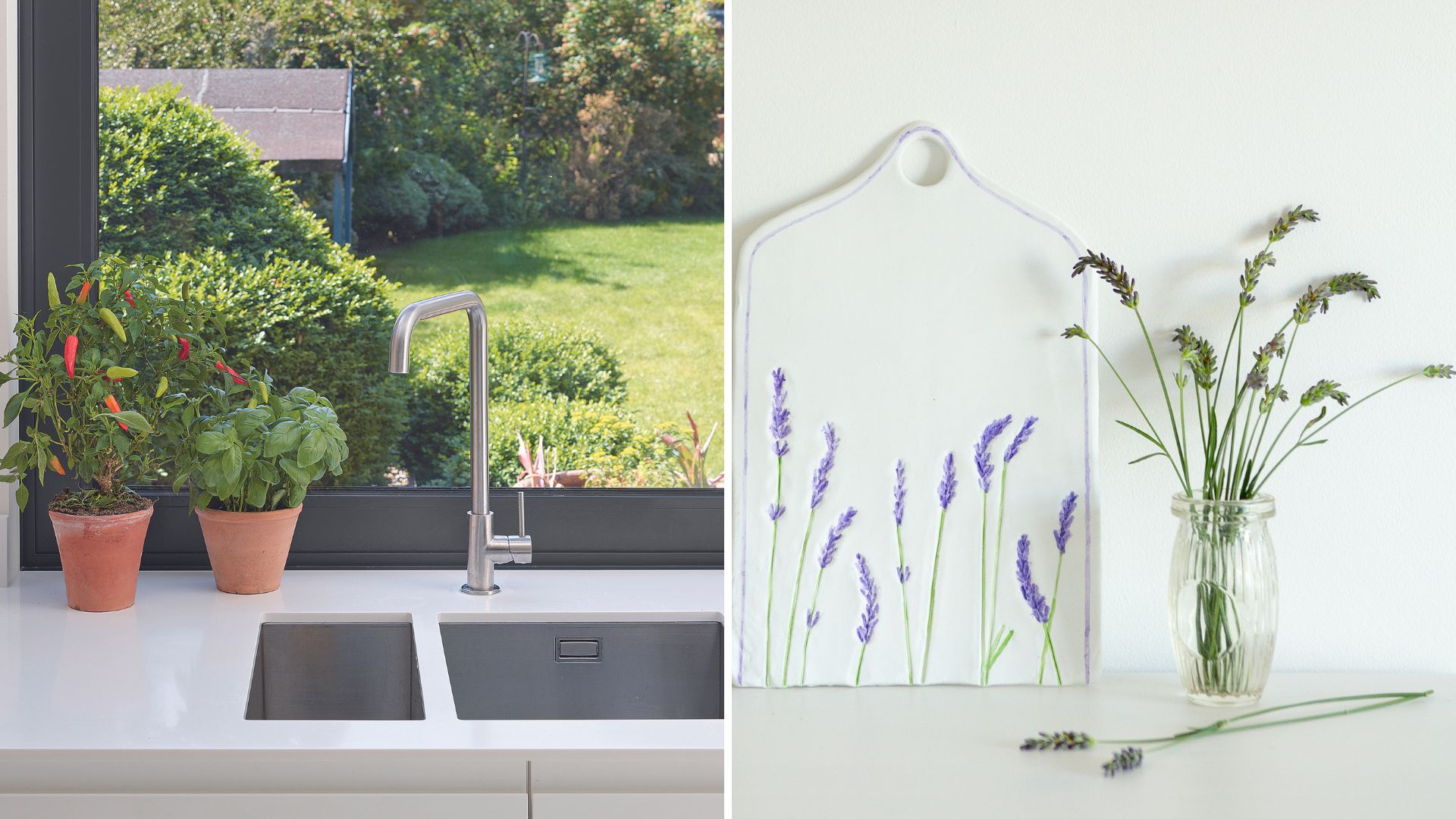
8. Ulitlize essential oils
"You might be surprised to learn that essential oils, such as lemongrass, can be effective in eliminating fruit flies," says Jordan. Try diffusing essential oils to keep fruit flies at bay; lemon verbena, thyme, or peppermint are thought to be the most effective.
"Creating a lemongrass spray is a simple process," suggests Jordan. "Combine 4 cups (950 mL) of water with 14 drops of lemongrass essential oil in a spray bottle. Give it a good shake, and only apply the spray to surfaces where you spot fruit flies, such as cabinets, countertops, and walls."
"It's important not to spray the solution directly on any food items. In addition to lemongrass, other scents that repel fruit flies include basil, peppermint, eucalyptus, lavender, and clove."
9. Cover top soil on houseplants
Despite the name ‘fruit fries,’ the source of an infestation can also be found in other types of products too, such as a forgotten bag of potatoes or onions in the back of a cupboard.
It’s also possible that you don’t have a fruit fly problem at all; the soil from houseplants and potted herbs can be a breeding ground for fungus gnats, which look very similar to fruit flies.
Tackle this problem by caring for your plants as required, removing dropped leaves, and being careful not to let them sit in water-logged soil – topping the soil with gravel can also help. Covering the soil of your indoor plants with sand or gravel allows you to still water but the soil becomes inaccessible to the flies.
What causes fruit flies?
A fruit fly infestation can occur at any time of year. Still, it’s more likely to be a problem in the summer and autumn months when ripe fruits are plentiful, and fruit fly eggs or roaming flies can find their way into kitchens through fresh garden produce brought indoors or an open window.
Sometimes no matter how often you clean your house, there can be less obvious sources of infestation, too. Fruit flies are generally attracted to ripe and/or rotting fruit and vegetables, as well as fermented foods and drinks-making our kitchens, unfortunately, breeding grounds. Fruit flies can breed both indoors and outdoors.
“They can start reproducing in trash cans [which are usually full of food], garbage disposals, drains, and even mop buckets,” says Jordan Foster of Fantastic Pest Control.
In addition to being annoying, each fruit fly has the potential to spread bacteria and disease, and an adult fruit fly has a typical lifespan of 40-50 days. Furthermore, adult females can lay up to 500 eggs – so it’s important to address the problem quickly.
But there are ways to try and prevent them from surfacing. “To prevent an infestation, regularly empty your trash cans, wipe countertops, and clean spills,” Jordan explained. “Clean your garbage disposals and drain lines. Don’t keep food waste around for too long.”

Tamara is a highly experienced homes and interiors journalist with a career spanning over 22 years. Now the Lifestyle Editor of womanandhome.com, she previously spent 18 years working with the style teams at Country Homes & Interiors and Ideal Home. With these award-winning interior teams, she gained a wealth of knowledge and honed her skills and passion for styling and writing about every aspect of lifestyle and interiors.
A true homes and interiors expert, Tamara has been an ambassador for leading interior brands on multiple occasions, including appearing on Matalan’s The Show and presenting at top interior trend forecasting events such as the Autumn Fair and Spring Fair.